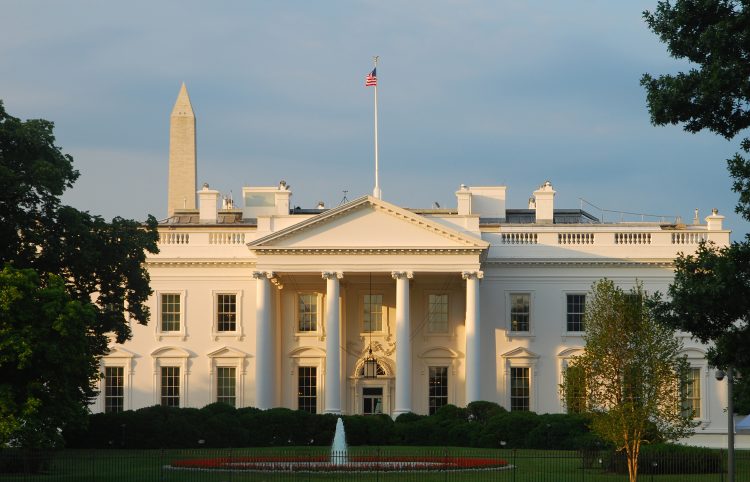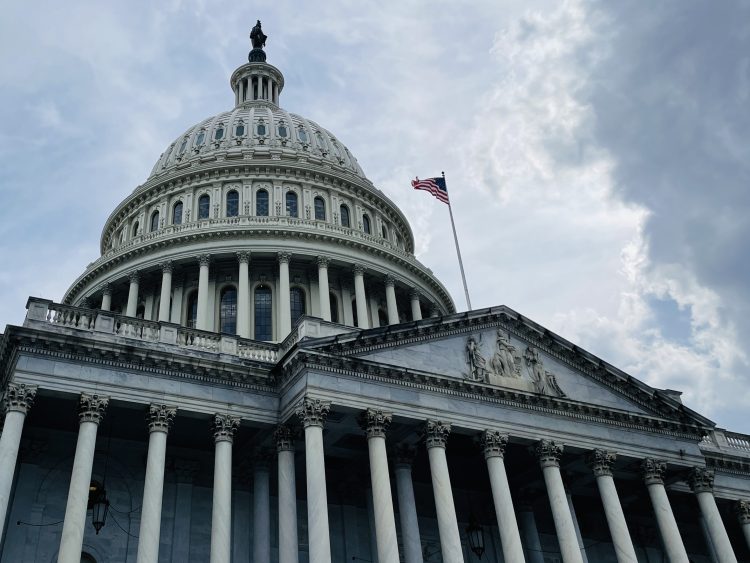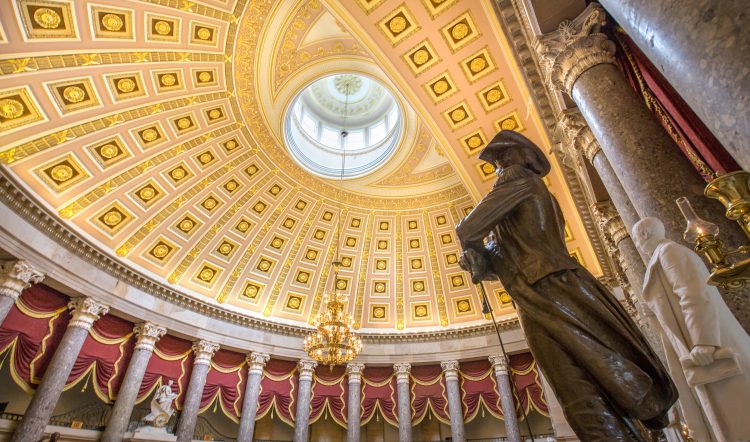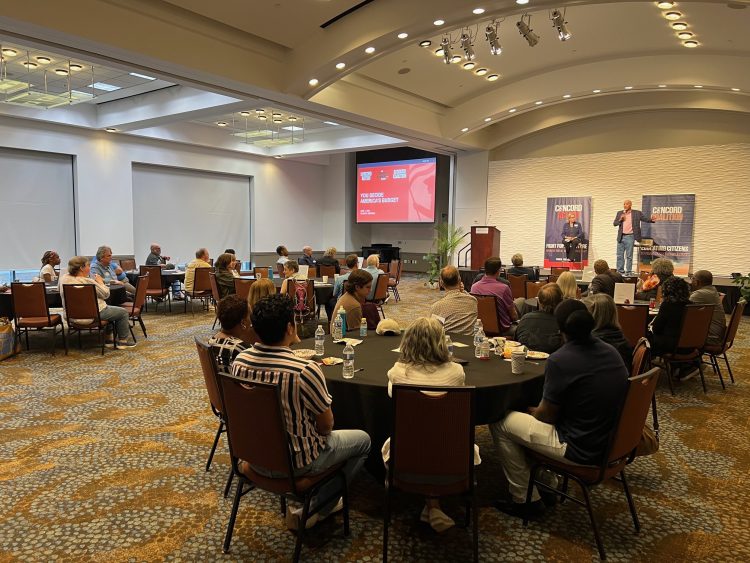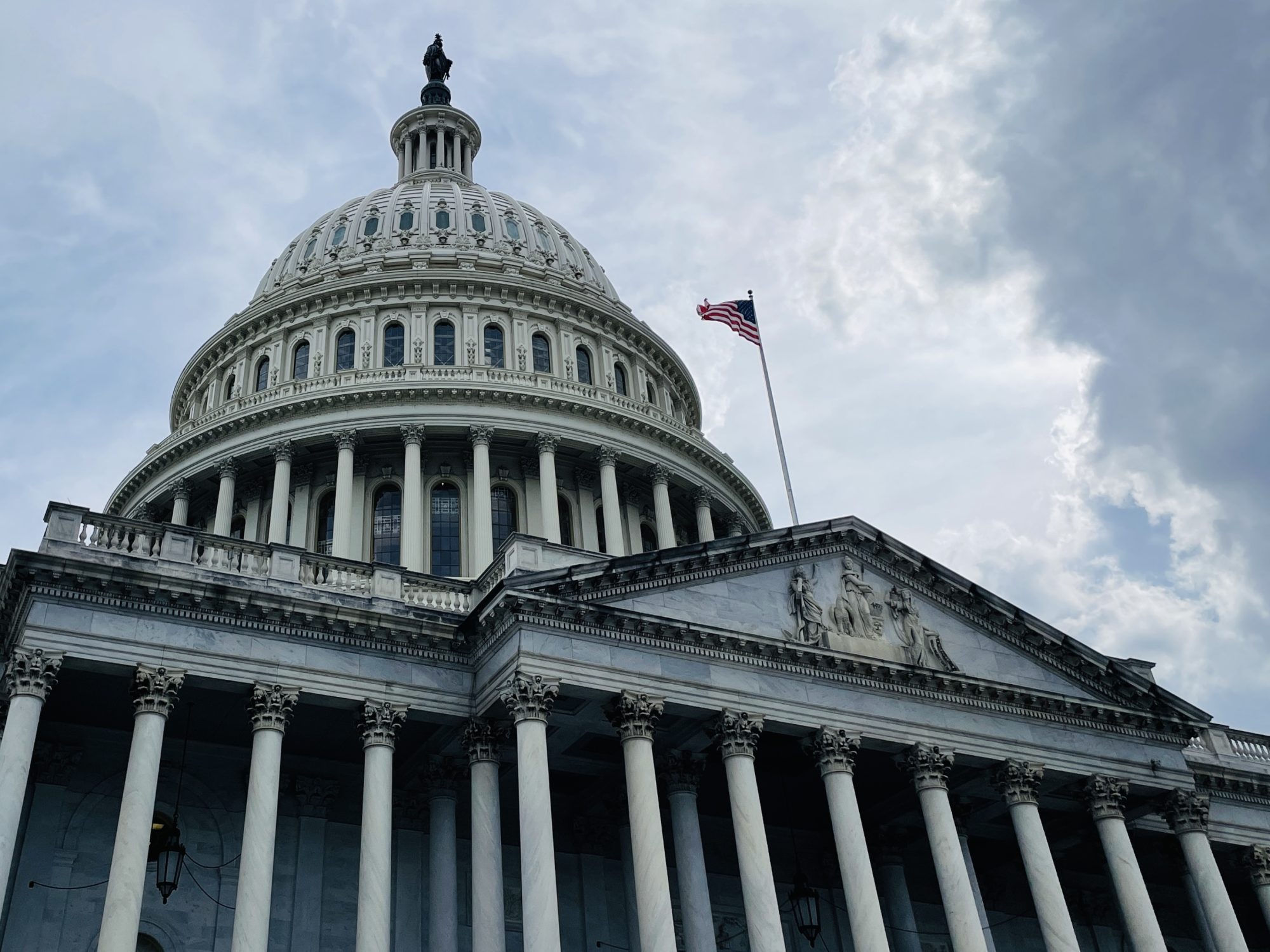By Bob Bixby, Host, Facing the Future
Click here to listen to the episode now
This week on Facing the Future, Jim Capretta of the American Enterprise Institute digs into the 2025 Medicare Trustees Report and explains why federal budget rules are deepening societal differences.
The annual Medicare Trustees Report came out while Congress was caught up in debate over the One Big Beautiful Bill Act (OBBBA), but Capretta noticed some things in the report that lawmakers should pay attention to.
“The Hospital Insurance Trust Fund (HI) is underfunded and will be depleted pretty quickly in a few years [2033] as more and more people pile into Medicare with the baby boom retiring. So spending pressures are high with new growth and enrollment,” Capretta said.
He is more concerned, however, with the growth projection of the Supplementary Medical Insurance (SMI) part of Medicare, which he described as “often overlooked.”
“All the attention is focused on the insolvency date of HI,” Capretta said, “but I always like to zero in on what’s going on with SMI, because SMI is financed with a general fund draw. And, as usual, the projections in this Trustees report are that it’s gone up a lot.”
Another Medicare program with growing costs is Medicare Advantage (MA). Capretta explained: “ When you go into Medicare they allow you to select one of those MA private insurance plans and they offer supplemental benefits that can often be attractive. The cost sharing in Medicare Advantage is very often below what you’d pay in traditional Medicare, and a lot of times they offer the drug benefit totally free of a premium.”
MA plans can do this, Capretta said, because “very likely these plans are being quite a bit overpaid relative to what would be paid if the same beneficiary were in the traditional program.
“Having said that,” he continued, “it’s also probably pretty clear that these private plans are somewhat more efficient than traditional Medicare because they have more screens on use of services. And so it’s a two-edged sword here, and I’ve always advocated going to competitive bidding as a way to pay these plans because I think it would bring more clarity about what the actual right price is to pay them, rather than something that the Government tries to calculate with complex formulas.”
Turning to the aftermath of the One Big Beautiful Bill Act (OBBBA) that was signed into law by President Trump on July 4th, Capretta used an analogy: “We’re all standing in a hole that’s 10 feet underground that both parties have dug, and we’re trying to figure out how we are going to get out of this mess. And this bill basically says, ‘well, the first thing we need to do is go down two more feet.’”
“They just have added a huge amount of downward pressure on revenue,” Capretta said, “and tried to say that they were going to pay for it with big changes in Medicaid, some of which I support, some of which I think are dubious and ill-advised. On net, I think the premise of the bill was flawed from the get-go, which is, the most important thing to do right now, for the country’s economic vitality is to permanently lower the revenue base still further. It’s kind of a smorgasbord of different things, some of which are good ideas, but in the context of a big fiscal expansion, no I don’t think that was a good idea.”
Capretta also worries that federal budget rules, particularly the reconciliation process designed to avoid a Senate filibuster, are deepening social tensions. “There’s been a series of elevations of the use of reconciliation toward partisan ends, and it’s seeped into the electoral and political process where the parties all think to themselves, ‘Hey, we’re pretty close if we just win the next election, or in the next two elections, we might get a shot at a big reconciliation bill that does everything we have ambitions to do, and the other side can’t stop us.’ So it’s become a pretty strong partisan process.”
Capretta weighed in on the rescission request from President Trump that the House has passed and the Senate is considering. “I’m of two minds about the rescissions package,” he said. “One is, I like the fact that they followed the law. The rescissions are a pathway through which cuts can be implemented in appropriation bills. It was provided in the Impoundment Control Act of 1974. So they’re using what you might call regular order, which is great. On the other hand, I think that they’re targeting foreign aid in a way that’s very indiscriminate and not particularly good for the country.”
He added, however, “What happens if it doesn’t pass, or even if it does, what are they doing in other parts of the Government? It’s clear from lots of reporting that they are holding back all kinds of funding that was provided through the Congressional appropriations process. They believe that they have a constitutional authority to impound funds that the Supreme Court will legitimize at some point even if Congress doesn’t agree to rescissions. So how this gets resolved in a way that’s good for our country is something that is very much up in the air.”
Hear more on Facing the Future. Concord Coalition Senior Advisor Bob Bixby hosts the program each week on WKXL in Concord N.H., and it is also available via podcast. Join us as The Concord Coalition team discusses issues relating to national fiscal policy with budget experts, industry leaders, and elected officials. Past broadcasts are available here. You can subscribe to the podcast on Spotify, Pandora, iTunes, Google Podcasts, Stitcher, or with an RSS feed. Follow Facing the Future on Facebook, and watch videos from past episodes on The Concord Coalition YouTube channel.
Continue Reading

